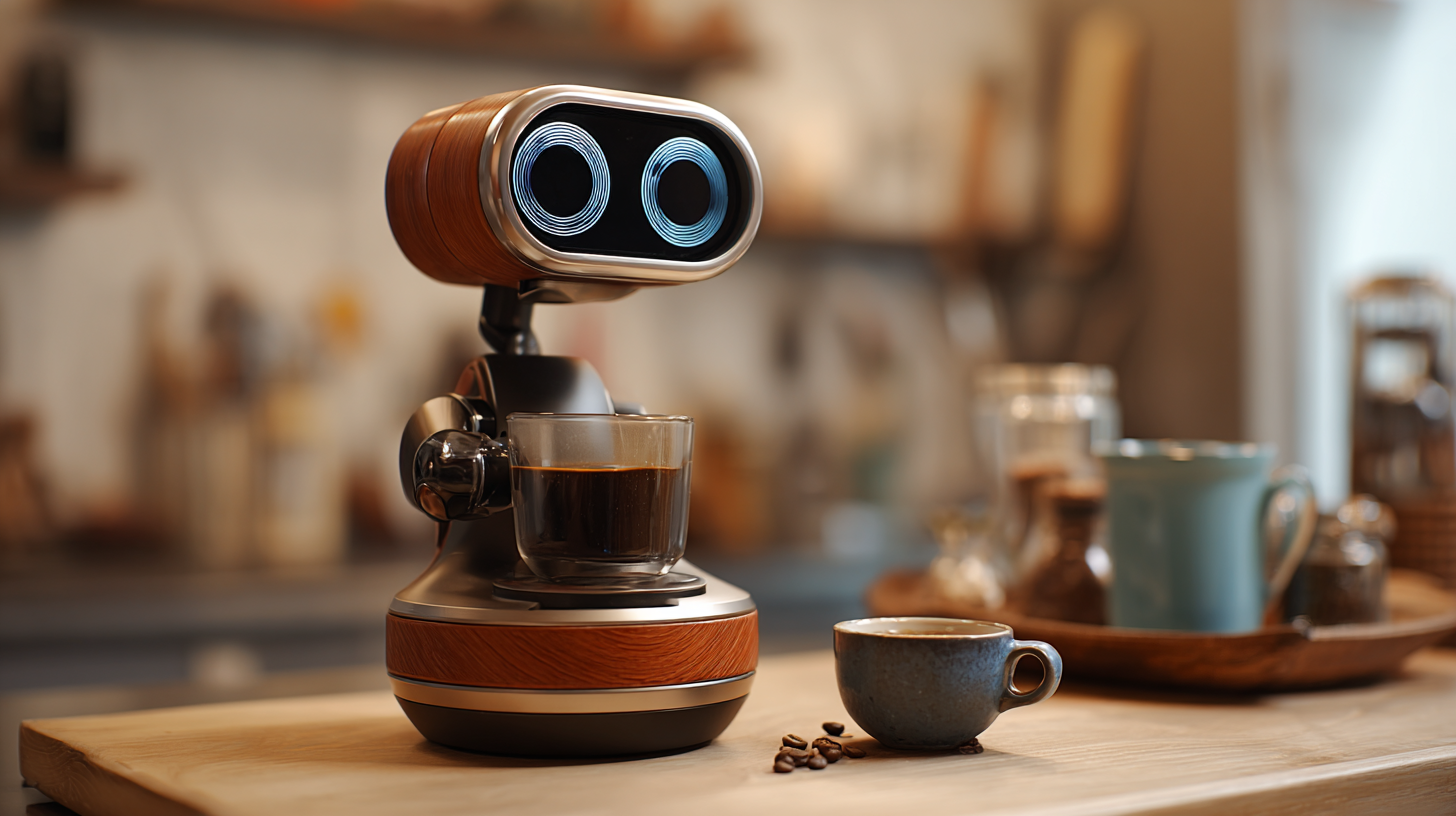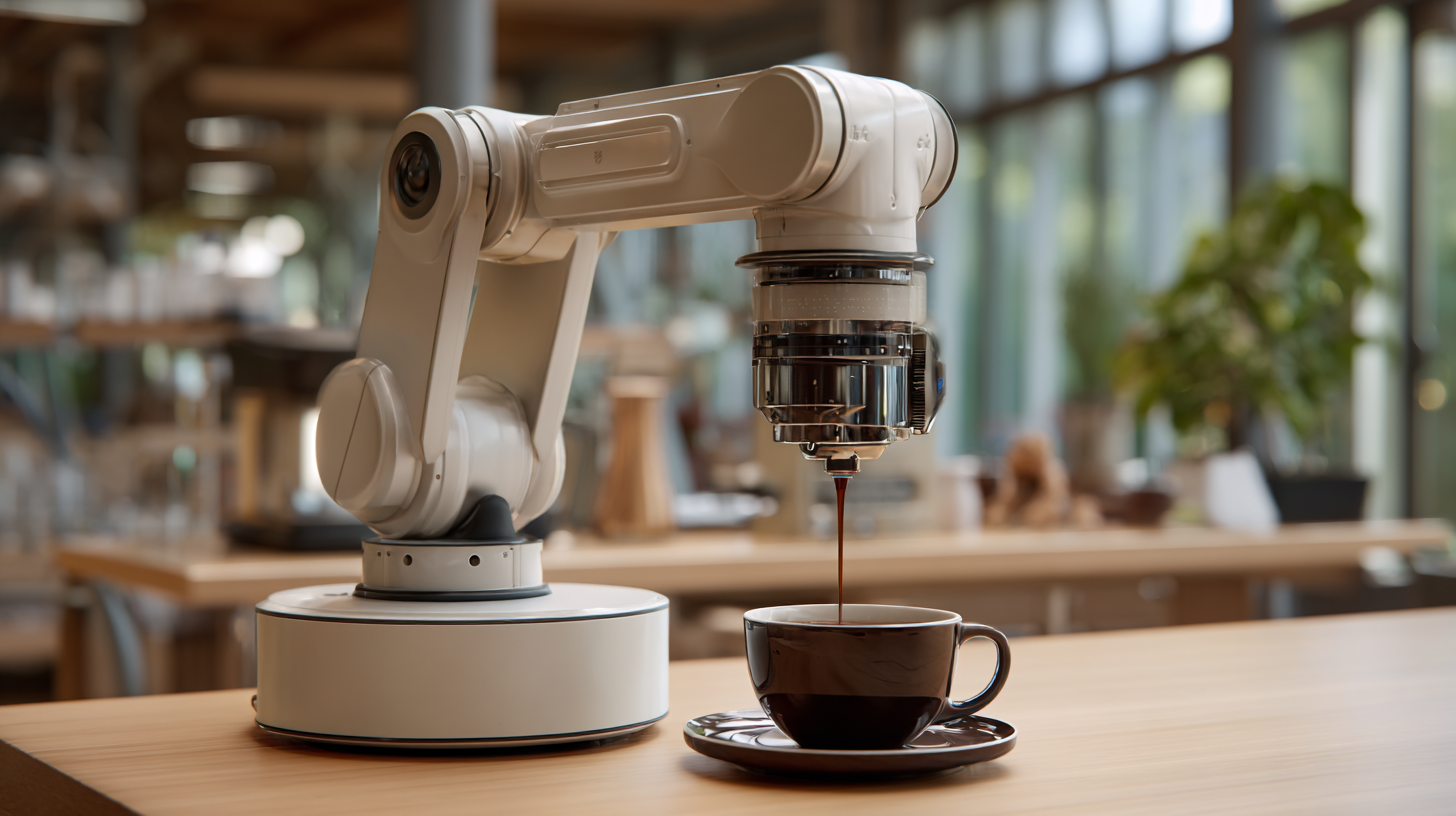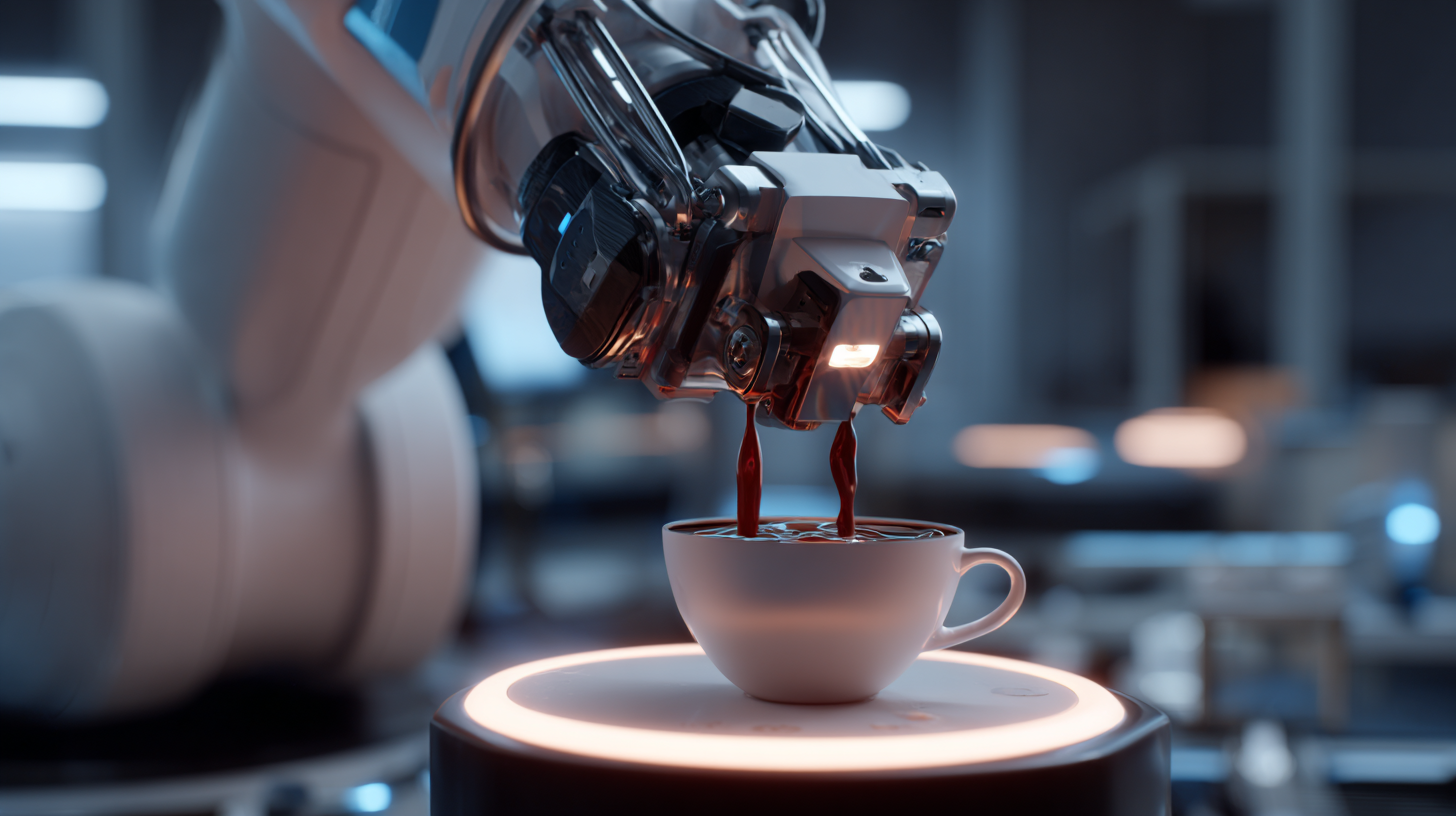In the rapidly evolving world of coffee, the infusion of technology has given rise to a revolutionary movement: the Coffee Robot. As coffee enthusiasts seek convenience without sacrificing quality, automated brewing technology is transforming how we experience our daily brew. Industry expert Dr. Jane Brewster, a leading voice in the field of automated food technology, aptly notes, "The Coffee Robot is not just about brewing a cup; it’s about redefining our relationship with coffee."
The development of Coffee Robots promises to streamline the brewing process, ensuring precision and consistency while allowing users to customize flavors at the touch of a button. This deep dive into automated brewing technology will explore the mechanics behind these innovative machines, the variety of functions they offer, and how they are shaping the future of coffee consumption. With a blend of robotics and sensory science, Coffee Robots are not merely machines—they are the gatekeepers to an enhanced coffee experience.
As we venture further into this exciting realm, we will uncover how these intelligent devices are revolutionizing the coffee landscape, making quality coffee more accessible to everyone, from novices to seasoned baristas. Join us on this journey to discover the future of coffee brewing and the fascinating technology that is driving this change.

The coffee machines market is poised for significant growth, estimating a valuation of $7.05 billion in 2023. Analysts predict a compound annual growth rate (CAGR) of 5.10% from 2024 to 2031. This upward trend reflects the increasing demand for automated brewing technologies, driven by a blend of convenience and quality that resonates with today’s coffee enthusiasts. As busy lifestyles push consumers toward quick and efficient solutions, automated coffee machines are becoming a staple in both homes and cafes.
The rise of smart brewing technology is transforming the way we perceive coffee preparation. Innovations such as app connectivity, customizable brewing settings, and advanced flavor extraction techniques are reshaping expectations. Market research indicates that consumers are willing to invest in higher-end machines that offer these sophisticated features, indicating a shift toward premiumization within the coffee segment.
Tips: When considering a new coffee machine, look for one that offers programmable settings. This feature allows you to prep your brew in advance, ensuring a fresh cup awaits you each morning. Additionally, prioritize machines with easy-clean designs for maintenance that fits seamlessly into your routine, prolonging the lifespan of your investment.
The integration of AI and machine learning in brewing technology is revolutionizing the coffee industry, making automated processes not just efficient but also highly customizable. At events like the 137th Canton Fair, AI Coffee Robots are showcased as a testament to this trend, captivating attendees with their ability to prepare a variety of beverages effortlessly. These innovations simplify the labor-intensive brewing process while enhancing the overall quality of coffee, reflecting a shift towards automation that is rapidly gaining momentum.
Companies have increasingly embraced AI to refine the brewing experience, employing advanced algorithms that ensure consistency and flavor precision. The focus on technology underscores a desire to elevate coffee crafting, allowing consumers to enjoy drinks tailored to their preferences. This evolution not only meets the demand for convenience but also fosters an intimate connection with the beverage, as personalized experiences become part of daily routines. The future of coffee brewing appears bright, driven by a wave of innovation that harmonizes technology with traditional craftsmanship.

The global specialty coffee market is poised for significant growth, with a forecasted market size of approximately USD 60,953.1 million by 2033, reflecting a compound annual growth rate (CAGR) of 10.5%. This robust expansion is driven by an increasing consumer preference for high-quality and specialty brewed coffee experiences. As this market evolves, the competition between automated and traditional coffee brewing methods intensifies, each offering unique advantages.
Automated brewing technology has begun to carve out a niche in both home and commercial settings, catering to the demand for convenience and consistency. The rise of capsule coffee machines exemplifies this trend, which is projected to grow from a market size of $1.73 billion in 2024 to $2.24 billion by 2032, marking a CAGR of 3.3%. In contrast, traditional methods continue to appeal to purists who value the skill and routine associated with hand brewing. Both methodologies, however, face scrutiny regarding health implications; for instance, workplace coffee machines have been found to contain higher levels of cholesterol-raising compounds compared to paper-filtered coffee. As consumers become more health-conscious, the choice between automated convenience and traditional craftsmanship will likely shape future trends in the coffee industry.

As coffee culture continues to evolve, consumer preferences increasingly lean towards convenience and personalization, driven by advancements in automated brewing technology. A recent report by Statista revealed that over 60% of consumers now prefer automated coffee machines for their home brewing needs, appreciating the consistency and quality of coffee produced. This shift towards automation is not just a luxury; it reflects a broader trend where time-starved individuals favor devices that save them time while still delivering a premium experience.
With automation, coffee drinkers have greater control over their brewing processes. According to the National Coffee Association, 45% of coffee lovers express interest in smart coffee makers that allow them to customize their brew settings via mobile apps. This technological integration not only satisfies the demand for personalized coffee but also enhances the overall experience of coffee preparation, making it interactive and enjoyable.
**Tip:** If you're exploring automated coffee machines, consider models that offer programmable settings. This feature allows you to experiment with different brewing times and temperatures, tailoring each cup to your unique taste.
As more consumers become tech-savvy, the appeal of coffee robots is set to grow. Research suggests that by 2025, nearly 75% of coffee enthusiasts will own some form of automated brewing device, highlighting the importance of integrating smart solutions in the coffee market.
**Tip:** Stay updated on the latest trends in coffee tech by following industry newsletters and attending coffee expos. This will help you choose the right technology that aligns with your brewing preferences and lifestyle.
| Automation Type | % of Consumers Interested | User-Friendliness Rating (1-5) | Impact on Choice | Price Range ($) |
|---|---|---|---|---|
| Fully Automated Brew Systems | 65% | 4.7 | High | 200 - 500 |
| Smart Coffee Makers | 75% | 4.5 | Moderate | 100 - 300 |
| Manual Espresso Machines | 40% | 3.8 | Low | 150 - 700 |
| Coffee Pods and Capsules | 80% | 4.2 | High | 50 - 200 |
| Mobile App Controlled | 55% | 4.6 | Moderate | 150 - 450 |
The landscape of coffee robotics is rapidly evolving, with innovations promising to enhance both brewing quality and user experience. Upcoming trends in automated coffee machines suggest a shift towards using artificial intelligence to personalize brewing preferences. By analyzing user data, these machines can adapt the brewing process in real time, ensuring that each cup is crafted to perfection according to individual tastes. This level of customization not only enhances flavor but also creates an engaging interaction for the consumer.
Additionally, future innovations are set to integrate smart home technology, allowing users to control their coffee robots through smartphones or voice commands. These advancements will further streamline the morning routine, letting users schedule brews or adjust settings from anywhere in their home. With the integration of IoT (Internet of Things), coffee robots will not only serve as appliances but as integral parts of smart living environments, creating a more seamless and delightful user experience. As the intersection of technology and coffee culture continues to flourish, we can expect a revolution in how we enjoy our daily brew.